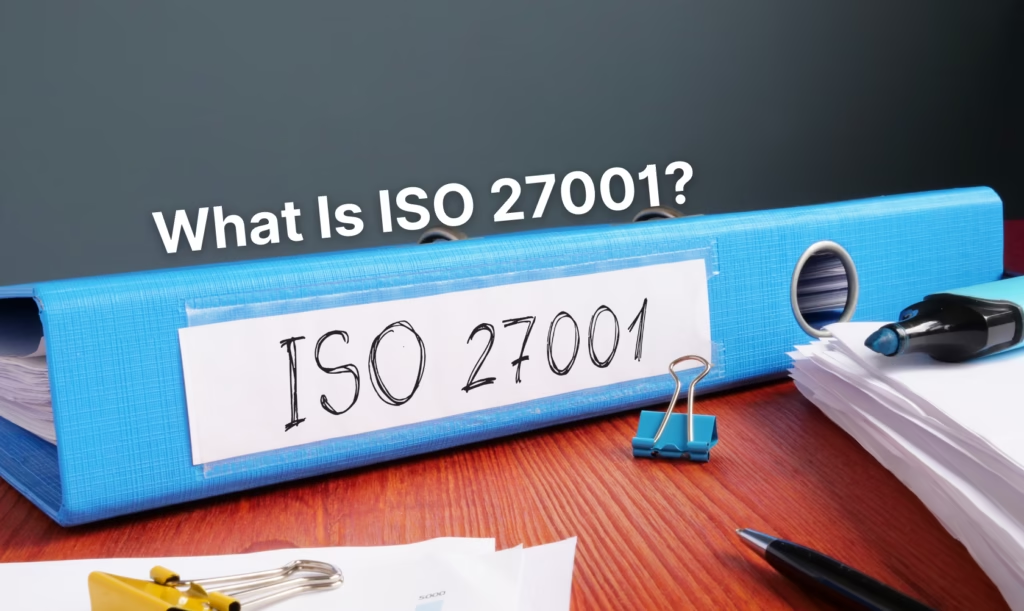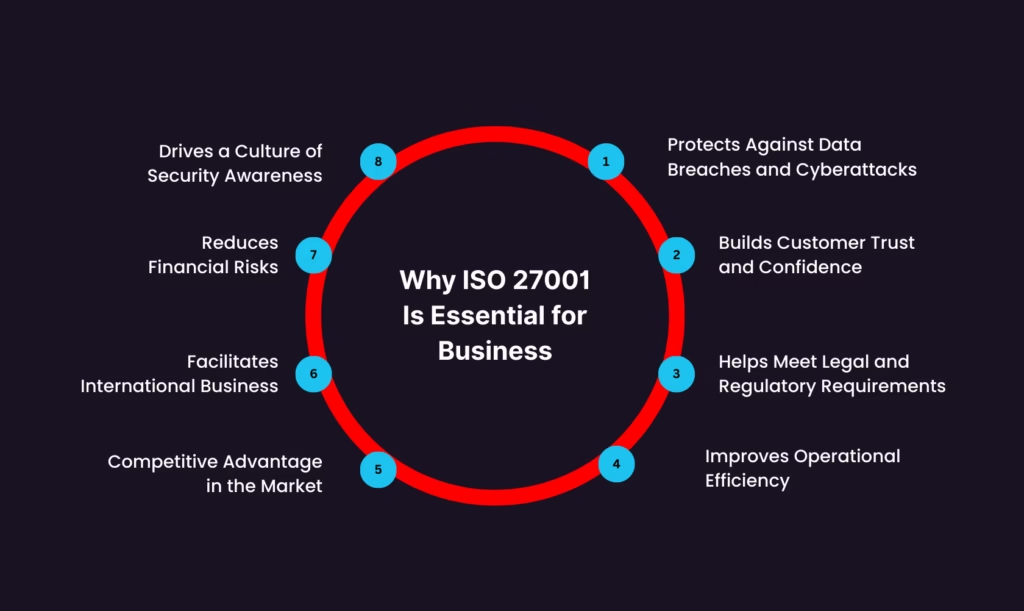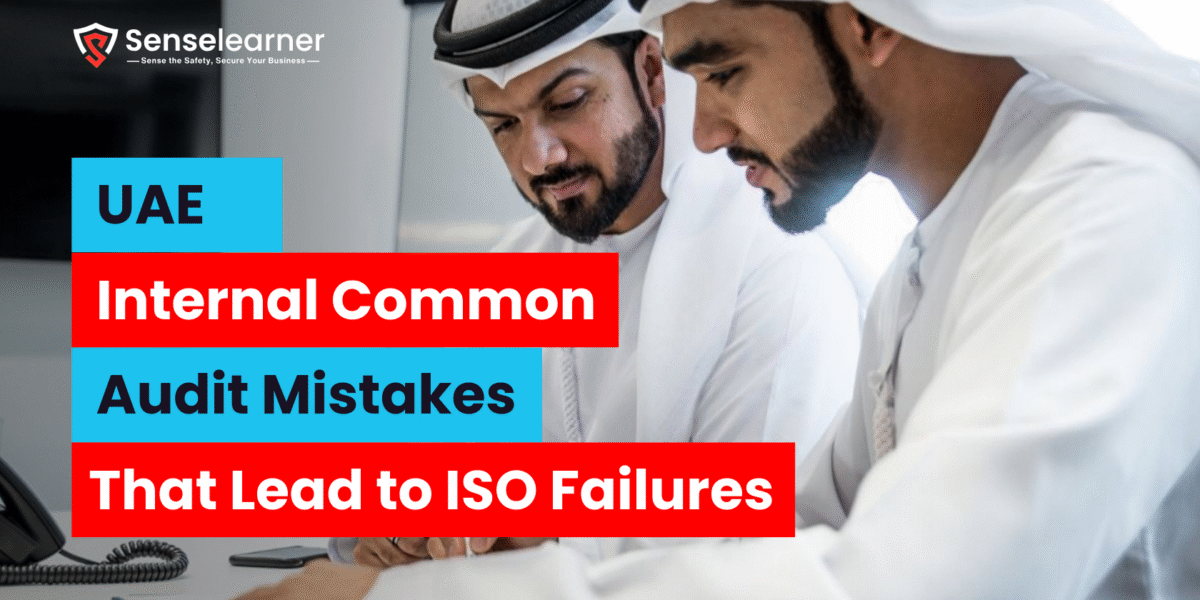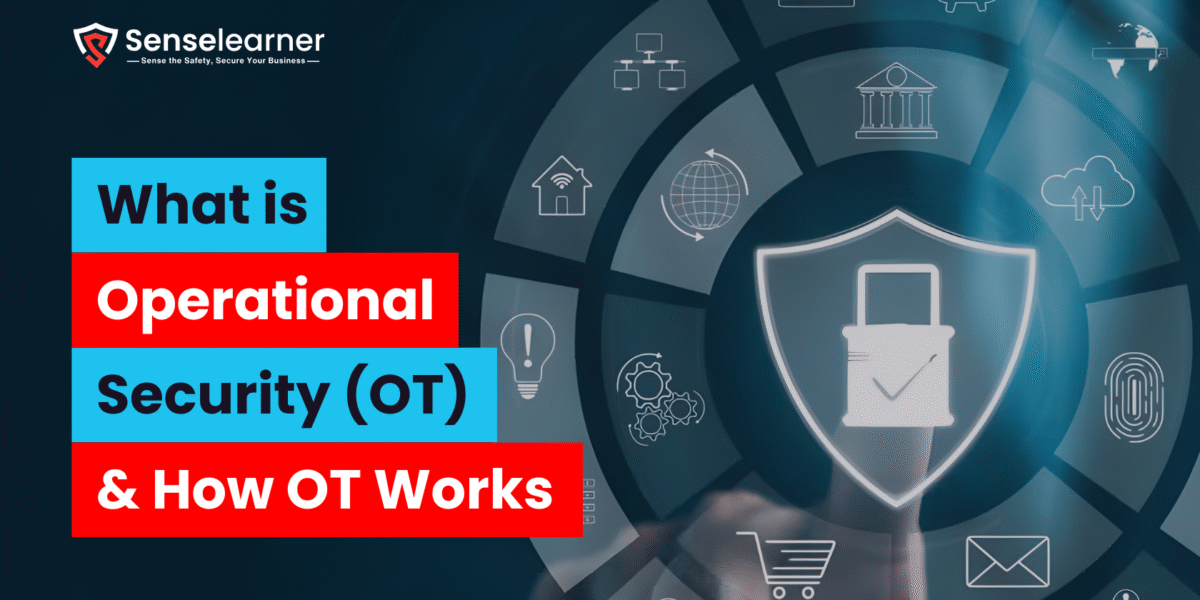In today’s hyper-connected world, data has become one of the most valuable assets for organizations. Whether you’re a small startup or a global enterprise, protecting sensitive information from customer records and financial data to intellectual property is vital for business continuity and reputation. This is where ISO 27001 comes into play.
ISO 27001 is not just another compliance certificate. It is a comprehensive framework for managing information security risks and ensuring your business has the tools and strategies needed to protect its data assets in an ever-evolving cyber landscape.
Table of Contents
What Is ISO 27001?

ISO/IEC 27001:2022 is a globally accepted and widely adopted standard for Information Security Management Systems (ISMS). It is jointly published by two leading international standardization bodies: the International Organization for Standardization (ISO) and the International Electro technical Commission (IEC). This standard serves as the cornerstone for organizations looking to implement a systematic and risk-based approach to managing and protecting their sensitive information assets.
- Identify information security risks that could affect the confidentiality, integrity, and availability of critical information.
- Implement robust security controls and procedures tailored to the specific risk profile and business environment of the organization.
- Monitor, evaluate, and improve those controls continuously to adapt to evolving security threats and business needs.
- Create a culture of security awareness and proactive risk management across all levels of the organization.
Unlike technical standards that focus on specific products or technologies, ISO 27001 is process-oriented, meaning it’s designed to integrate with existing organizational processes and be applicable to organizations of all types and sizes—from small startups and educational institutions to multinational corporations and government agencies.
Core Principles of ISO 27001
The foundation of ISO 27001 revolves around three critical aspects of information security:
| Core Principle | Description |
| Confidentiality | Ensures that information is accessible only to those authorized to have access. |
| Integrity | Safeguards the accuracy and completeness of information and processing methods. |
| Availability | Ensures that authorized users have access to information and associated assets when required. |
Key Elements of an ISO 27001 Information Security Management System (ISMS)
An effective (ISMS) under ISO 27001 includes the following components:
| Key Element | Description |
| Information Security Policies | Defined policies that outline the organization’s approach to securing data and maintaining information security objectives. |
| Risk Assessment and Treatment | Identifies information security risks and outlines a plan to mitigate or manage those risks effectively. |
| Statement of Applicability (SoA) | A document specifying which of the 93 Annex A controls are applicable to the organization and why they were included or excluded. |
| Security Controls (Annex A) | A list of 93 controls under four themes (organizational, people, physical, technological) designed to address various security risks and threats. |
| Training and Awareness Programs | Regular training to ensure all employees understand security policies and their responsibilities in protecting information. |
| Internal Audit and Management Review | Routine checks and evaluations to ensure the ISMS is effective and aligned with ISO 27001 requirements, along with top-level review by management. |
| Continual Improvement (PDCA Cycle) | A process of ongoing enhancement using the Plan-Do-Check-Act methodology to improve the ISMS as threats and business needs evolve. |
Why ISO 27001 Is Essential for Business

As cyber threats continue to evolve, protecting sensitive data has never been more critical for business success. ISO 27001 provides a comprehensive framework that can safeguard your organization’s most valuable assets: information and data. Let’s dive deeper into why implementing ISO 27001 is not just a best practice but an essential strategy for any business today:
1. Protects Against Data Breaches and Cyberattacks
In today’s digital age, cybersecurity threats are not only increasing in frequency but also becoming more sophisticated. Data breaches, ransomware attacks, phishing schemes, and insider threats are just a few examples of the security challenges businesses face. The consequences of such attacks can be severe, including financial losses, reputational damage, legal repercussions, and operational disruption.
ISO 27001 provides a structured framework for identifying potential threats, assessing the risks, and implementing effective security controls to mitigate those risks. It helps organizations proactively defend against cyberattacks by enforcing best practices and providing tools for identifying weaknesses before they are exploited. Regular reviews and audits ensure that your business adapts quickly to evolving threats, significantly reducing the likelihood of a data breach and minimizing downtime.
2. Builds Customer Trust and Confidence
In an increasingly data-driven world, customers are more concerned than ever about how their personal information is being handled. Whether it’s their financial details, medical records, or purchasing history, they expect businesses to safeguard their data with the utmost care. Customers have the right to know that their sensitive information will be protected from unauthorized access or misuse.
By becoming ISO 27001 certified, your organization demonstrates a strong commitment to securing customer data. This certification serves as a seal of trust, showcasing your adherence to international standards and your dedication to protecting customer privacy. This can help build long-lasting relationships with customers, enhance loyalty, and ultimately increase your customer base. When customers feel confident that their data is secure, they are more likely to choose your business over competitors.
3. Helps Meet Legal and Regulatory Requirements
As data protection laws and regulations continue to grow in scope, businesses face increasing pressure to comply with a variety of legal requirements. Organizations that fail to meet these legal obligations risk facing hefty fines, reputational damage, and even legal action. Some of the most notable regulations that ISO 27001 helps businesses comply with include:
- GDPR (General Data Protection Regulation) – This regulation applies to businesses operating in the European Union (EU) or those that process the data of EU citizens. GDPR imposes stringent requirements on data protection, and failure to comply can result in significant fines.
- HIPAA (Health Insurance Portability and Accountability Act) – For businesses in the healthcare industry in the United States, HIPAA mandates strict controls on patient data to protect privacy and ensure the security of sensitive health information.
- DPDP (Data Protection and Privacy) Act – In India, the DPDP Act aims to safeguard personal data and ensures businesses are held accountable for how they manage and protect consumer data.
ISO 27001 helps ensure your organization aligns with these and other legal obligations. By adhering to its standards, businesses minimize the risk of non-compliance and avoid the potentially severe financial and reputational consequences of data protection failures.
4. Improves Operational Efficiency
An often-overlooked benefit of ISO 27001 is how it can lead to enhanced operational efficiency. The framework encourages organizations to clearly define roles, responsibilities, and processes related to information security. This leads to better internal coordination and clearer communication channels, reducing the chance of errors and misunderstandings.
By implementing structured processes for managing data security, organizations can streamline their operations, resulting in greater productivity. ISO 27001 promotes a culture of responsibility, where everyone from the C-suite to entry-level staff understands their role in maintaining security. This clarity and structure ultimately lead to a more efficient and effective organization.
5. Competitive Advantage in the Market
In a crowded marketplace, distinguishing your business from the competition can be challenging. ISO 27001 certification gives you a competitive edge by showcasing your commitment to security and compliance with international standards.
For instance, if your company is bidding for a government contract or partnering with a major corporation, ISO 27001 certification can be the deciding factor in winning the deal. Many large organizations, particularly those in sectors like finance, healthcare, and government, require their vendors and partners to be ISO 27001 certified to ensure that their data and operations are secure. Being certified not only opens doors to new business opportunities but also enhances your reputation as a trusted partner.
6. Facilitates International Business
ISO 27001 is a globally recognized standard. Whether you’re operating locally or planning to expand internationally, this certification can help you navigate the complex landscape of international compliance.
For businesses looking to enter foreign markets or attract international partners, having ISO 27001 certification can serve as a powerful tool for overcoming compliance barriers across borders. It assures your global partners that your information security measures meet international best practices, which is particularly important in industries that handle sensitive information.
Moreover, the certification can be a requirement for doing business with organizations in different countries, further facilitating market entry and cross-border collaborations.
7. Reduces Financial Risks
According to various industry reports, the average cost of a data breach runs into millions of dollars. This includes costs related to lost revenue, legal fees, regulatory fines, and the reputational damage that can linger for years.
ISO 27001 helps mitigate these financial risks by implementing a preventative security framework. By proactively managing and reducing risks associated with information security, the likelihood of a breach occurring is significantly lower. In turn, this helps businesses avoid the high costs associated with recovery efforts, legal settlements, and potential compensation to affected customers.
Ultimately, ISO 27001 can help safeguard your company’s bottom line by preventing the severe financial repercussions of a data breach.
8. Drives a Culture of Security Awareness
ISO 27001 isn’t just about technology it’s also about people. One of the key benefits of the standard is that it fosters a culture of security awareness throughout the organization.
Employees become more conscious of the importance of securing information and understanding their role in protecting sensitive data. This cultural shift helps create an environment where security is everyone’s responsibility, from top management to operational staff. Regular training and awareness programs under ISO 27001 ensure that employees understand the risks, threats, and best practices for handling sensitive information securely.
Who Should Consider ISO 27001 Certification

ISO 27001 is ideal for:
- IT service providers
- Financial institutions
- E-commerce companies
- Healthcare organizations
- Consulting firms
- Government contractors
If your business collects, processes, or stores sensitive data, ISO 27001 is not optional—it’s essential.
Steps to Get ISO 27001 Certified
Achieving ISO 27001 certification requires careful planning, execution, and continuous improvement. The process involves multiple steps to ensure that your organization’s Information Security Management System (ISMS) meets the international standards for protecting sensitive information. Below are the detailed steps involved in obtaining ISO 27001 certification:
1. Gap Analysis – Review Current Systems and Identify Areas that Fall Short of ISO 27001 Requirements
Before embarking on the certification journey, it’s crucial to conduct a Gap Analysis. This step involves reviewing your current information security management practices and comparing them against the ISO 27001 standard. The goal is to identify any gaps, deficiencies, or areas where your current systems fail to meet the requirements of the standard.
- During the gap analysis, you will:
- Assess your existing security policies, procedures, and technologies.
- Identify missing or insufficient controls.
- Understand risks associated with your information management and security processes.
- Map out a roadmap for aligning your existing systems with ISO 27001 requirements.
The gap analysis serves as the foundation for implementing ISO 27001 because it highlights areas that need immediate attention, ensuring that you can develop an actionable plan to close those gaps.
2. Develop ISMS – Build a Compliant Information Security Management System (ISMS) Tailored to Your Business Needs
Once the gaps are identified, the next step is to design and build an Information Security Management System (ISMS) that aligns with ISO 27001’s requirements. The ISMS is a comprehensive set of policies, procedures, and practices tailored specifically to your business’s needs and objectives.
Key components of the ISMS include:
- Information security policy: Outlining the security objectives and strategic direction for your organization.
- Risk assessment and treatment plan: Identifying security risks and detailing how to mitigate or manage them.
- Asset management: Ensuring all critical assets (data, hardware, software) are identified and protected.
- Access control and authentication mechanisms: Setting up strong controls to restrict unauthorized access to sensitive information.
- Incident response plans: Outlining how to handle security incidents, including data breaches or cyberattacks.
An effective ISMS ensures that the entire organization is aligned with the objective of protecting sensitive information and meeting ISO 27001 standards. This system should be customized to address the unique security requirements of your organization.
3. Implement Controls – Apply the Necessary Security Controls from Annex A
ISO 27001 provides a list of security controls (Annex A), which serve as best practices for securing information. Once your ISMS are developed, the next step is to implement the required controls based on your risk assessment and treatment plan.
These controls include:
- Physical security: Ensuring secure access to buildings, devices, and information.
- Technical controls: Firewalls, encryption, intrusion detection systems, and other security technologies to protect data.
- Operational controls: Policies and procedures that ensure day-to-day information security practices are followed.
- Personnel security: Ensuring that employees, contractors, and third parties understand and follow security best practices.
The implementation of these controls is a critical step in ensuring that your organization is fully aligned with ISO 27001. These controls will protect your information from cyber threats, unauthorized access, and other security risks.
4. Conduct Training – Educate Employees about Security Policies and Practices
One of the most vital aspects of ISO 27001 implementation is employee engagement. Since employees play a significant role in safeguarding sensitive information, it is essential to train them on security policies, procedures, and best practices.
- Training sessions should cover:
- The importance of information security and how employees contribute to maintaining it
- Understanding the organization’s ISMS, policies, and security controls.
- Security awareness topics like recognizing phishing attempts, data protection techniques, and secure password practices
- Roles and responsibilities related to information security within the company.
By educating employees on security policies and best practices, you not only ensure compliance with ISO 27001 but also foster a culture of security awareness across your organization. This is a key to reducing the risk of human error and strengthening your overall security posture.
5. Internal Audit – Test the ISMS before the Official Audit
Once your ISMS are in place and security controls are implemented, it’s time to conduct an internal audit. This is a critical step in ensuring that your ISMS is functioning correctly and effectively managing risks in accordance with ISO 27001 standards.
During the internal audit:
- You will evaluate whether your ISMS complies with ISO 27001’s requirements.
- Identify areas for improvement or any non-conformity.
- Ensure that processes for monitoring, reviewing, and improving the ISMS are working effectively.
The internal audit helps your organization identify potential weaknesses or gaps in the system that may need addressing before undergoing the official audit by a third-party certification body. It’s essential to address any issues that arise during the internal audit to ensure a smooth external audit process.
6. External Audit & Certification – A Third-Party Auditor Will Evaluate Your ISMS
The final step is the external audit conducted by an accredited third-party auditor. This is the official assessment of your ISMS to determine if it meets ISO 27001 requirements.
The external audit typically involves:
- Stage 1: The auditor reviews your ISMS documentation to ensure it meets the standard’s requirements.
- Stage 2: The auditor performs an on-site assessment, interviewing staff, reviewing processes, and examining how well the ISMS have been implemented.
If the audit is successful, the certification body will issue an ISO 27001 certificate, demonstrating your organization’s compliance with the standard. This certification is valid for three years, after which a re-certification audit is required.
7. Post-Certification – Maintain and Improve Your ISMS
Achieving ISO 27001certification is not the end of the journey; it’s just the beginning, to maintain certification, you will need to continuously monitor and improve your ISMS. This involves:
Regularly reviewing and updating security controls based on emerging risks.
- Conducting periodic audits and risk assessments.
- Ensuring on-going employee training and awareness
- Implementing corrective actions for any non-conformities or issues identified during audits.
ISO 27001 is a continuous improvement standard, which means your ISMS must evolve as new threats and technologies emerge. Regularly maintaining your ISMS will help your organization stay ahead of security challenges and retain your ISO 27001 certification.
Explore More: What is HIPAA Compliance and Why is it Important?
FAQ
What are the key advantages of ISO 27001 for small and medium-sized businesses (SMBs)?
ISO 27001 offers small and medium-sized businesses (SMBs) the ability to strengthen their cybersecurity posture without requiring vast resources. It helps SMBs protect sensitive information, comply with industry regulations, and establish trust with clients and partners. The standard provides a scalable framework that can be customized according to the size and needs of the business, ensuring that information security measures grow with the organization.
How does ISO 27001 enhance risk management within an organization?
ISO 27001 helps businesses adopt a proactive approach to risk management by requiring regular risk assessments. The standard helps identify potential security threats, assess their impact, and put in place controls to mitigate risks. This systematic approach ensures that businesses are prepared to address vulnerabilities before they turn into actual security incidents, reducing both operational disruptions and the impact of potential data breaches.
How can ISO 27001 contribute to building partnerships with other businesses?
ISO 27001 certification acts as a mark of reliability and security for businesses, making it an essential factor when forming partnerships, Companies are more likely to engage with other businesses that demonstrate a commitment to securing data and maintaining robust security practices. By implementing ISO 27001, your organization can establish itself as a trusted partner, gaining credibility and access to new business opportunities, especially in sectors that require high levels of data protection.
Does ISO 27001 certification improves the efficiency of business operations?
Yes, ISO 27001 can improve business efficiency by streamlining processes and creating a structured approach to managing information security. The standard encourages organizations to define clear roles, responsibilities, and procedures related to security management, which helps reduce errors, enhance internal coordination, and prevent unnecessary risks. By maintaining a focused, risk-managed environment, businesses can achieve smoother operations and reduce downtime caused by security incidents. Environment, businesses can achieve smoother operations and reduce downtime caused by security incidents.



